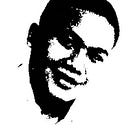Member-only story
When “Apa Dollah” Throws Soldiers with Milkfish [A Story]
This story is inspired by a true story that happened in Aceh when the area nicknamed the Veranda of Mecca was imposed with the status of a Military Operations Area (DOM).
IF there is a story that still makes me laugh out loud to this day, then it is the story about Apa Dollah (not real name). It’s just that lately I’ve never laughed at his ‘silliness’ again, especially after hearing how he escaped to Medan. He did this when the government held a red net operation to crush the Security Disruption Movement (GPK, the government’s name for Hasan Tiro’s group). Not many young men his age dared to defy death by secretly leaving their hometown at that time.
As we know, since 1989, the atmosphere in the villages in Aceh, especially in the three areas labeled red, has not been good: Pidie, North Aceh, and East Aceh. [At that time, Pidie Jaya, Bireuen, Lhokseumawe, and Langsa cities had not yet been born. If I remember correctly, the division of the region was only carried out after the reformation]. Many community members choose to migrate outside the region or study at traditional Islamic boarding schools. You see, staying in the village means being ready to accept all the consequences: being beaten, killed, and/or dead. Such is the risk of living in a war zone.
